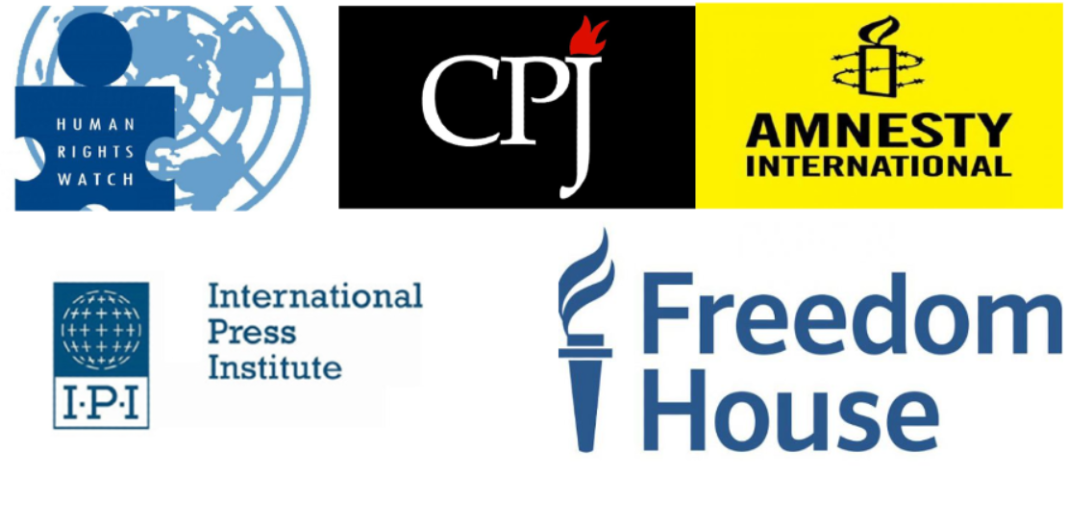Human Rights Watch (HRW) and the Committee to Protect Journalists (CPJ) have joined 16 other media and human rights organizations in condemning the arrest of a veteran investigative journalist under a controversial law criminalizing disinformation following his report on alleged corruption in the Turkish judiciary, which was based on a document purportedly from the National Intelligence Organization (MİT).
The signatories of the statement, which include the International Press Institute (IPI), Amnesty International, Article 19 and Freedom House, called for journalist Tolga Şardan’s immediate release.
The groups criticized the Turkish government’s ongoing crackdown on media freedom, which has recently resulted in the arrest of Şardan for his reporting on judicial corruption.
Şardan, a journalist for the T24 news website, was detained over an article that discussed a report on corruption within the justice system, allegedly commissioned from MİT by the president’s office.
Following his detention, Şardan defended his work, stating, “My article constitutes journalistic work carried out with the sole purpose of informing the public.” His legal counsel argued that the allegations raised in Şardan’s article warranted an investigation, not the arrest of the journalist.
Şardan claimed in an article the existence of a MİT report submitted to President Recep Tayyip Erdoğan describing corrupt practices among judges and prosecutors.
The presidency’s communications directorate denied the existence of the MİT report, and Şardan’s article was subsequently blocked online.
He was transferred to court with a request for his arrest and was subsequently imprisoned.
Şardan’s arrest was made under the controversial “disinformation” law,” which criminalizes the dissemination of “false or misleading information” and stipulates prison sentences of between one and three years.
The law, which was passed in October 2022 and signed by President Erdoğan, has drawn widespread criticism from rights groups and the opposition for further restricting freedom of expression in Turkey.
The Constitutional Court announced on Thursday that it would discuss the potential annulment of the disinformation law on Nov. 8.
“The undersigned media freedom, freedom of expression, human rights, and journalists’ organizations strongly condemn the arrest of seasoned journalist Tolga Şardan in Ankara,” the signatories said in their statement.
The statement highlighted the importance of the International Day to End Impunity for Crimes Against Journalists (IDEI) and demanded that the Turkish judiciary focus on holding those accountable who violate press freedom rather than punishing journalists for their work. The statement also pointed out that Şardan’s article falls within the scope of legitimate public concern and that the series of investigative reports he contributed to have all faced online blocking by court orders.
Since the introduction of the Disinformation Law in October 2022, it has been used at least 12 times to target journalists, contradicting assurances from government representatives that the law would not be used against the press but rather to deter the spread of false information during emergencies, the signatories said.
Earlier this year, journalist Sinan Aygül became the first journalist to be convicted under the Disinformation Law.
Şardan’s arrest marks the 13th alert on Mapping Media Freedom concerning Disinformation Law cases reported in Turkey over the past year.
The signatories of the statement have called for an end to the systematic judicial harassment of journalists in Turkey. They assert that journalism is not a crime and that the detention of journalists for their reporting is a violation of freedom of expression and media freedom.
The statement was coordinated by IPI as part of its #FreeTurkeyJournalists campaign and the Media Freedom Rapid Response (MFRR) consortium, which monitors press and media freedom across Europe.
Turkey is ranked 165th out of 180 countries in Reporters Without Borders’ latest press freedom index.
